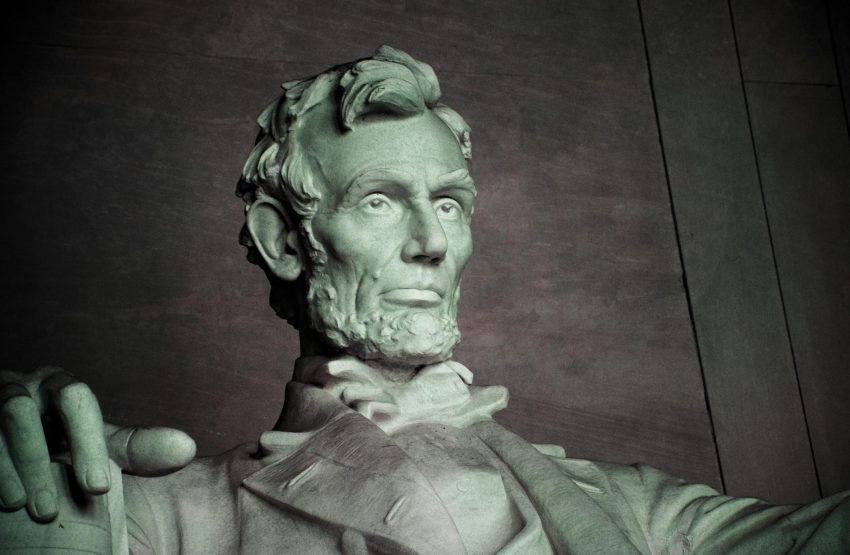In an increasingly interconnected world, the significance of America Leadership has never been more crucial. As global challenges intensify, including economic uncertainty, security threats, and technological advancements, the United States finds itself at a pivotal crossroads. Historically, American leadership has not only shaped international relations but has also acted as a catalyst for innovation and economic growth at home. Therefore, it is imperative for the U.S. to assert its leadership role, rather than adopt a reactive stance. This blog post will explore the historical context of American leadership, examine how strong global leadership bolsters national security, and highlight the essential connection between leadership, innovation, and economic prosperity.
The Historical Context of American Leadership
The historical context of American leadership is rooted in a legacy of innovation, resilience, and a commitment to democratic values. As one of the leading nations post-World War II, the United States emerged not only as a military powerhouse but also as a pivotal player in shaping international alliances and institutions, such as the United Nations and NATO. This leadership role was not merely birthed from strength but also from a vision to promote peace, stability, and prosperity across the globe.
From the early days of the American Revolution, the ideals of freedom and democracy have been at the forefront of the nation’s identity. These principles became the bedrock for international engagement, encouraging the U.S. to support new democracies and foster human rights. As America navigated through the Cold War, it became evident that America’s leadership was essential in countering authoritarian regimes and fostering a liberal world order. By advocating for shared values and democratic governance, the U.S. has historically positioned itself as a beacon of hope and progress on the global stage.
Moreover, the economic prosperity witnessed by the nation during the latter half of the 20th century further solidified its leadership status. The Marshall Plan, for instance, not only aided war-torn Europe but also established a framework for economic recovery and integration, showcasing how American leadership could yield positive global outcomes. Such historical moments underscore a consistent pattern: American leadership has been instrumental in crafting an interconnected world, emphasizing that leading transcends military might and encompasses moral responsibility and collaborative growth.
In summary, understanding the historical context of American leadership reveals its profound impact on international dynamics. Acknowledging this legacy enriches our appreciation for the role the U.S. plays today and reinforces the necessity for continued leadership in a rapidly changing global landscape.

The Impacts of Global Leadership on National Security
Global leadership plays a pivotal role in ensuring national security, and America’s leadership is integral to this dynamic. Strong diplomatic ties and alliances formed by American leadership foster a network of cooperation that enhances security not only domestically but also on an international scale. By engaging with countries across various territories, America can mitigate threats, share intelligence, and collaboratively address global challenges such as terrorism, cybercrime, and environmental disasters.
Moreover, global leadership provides stability in geopolitical landscapes. When America takes the lead, it often acts as a stabilizing force in regions prone to conflict. For instance, U.S. interventions and peacekeeping missions have historically aimed to prevent the escalation of violence in volatile areas. This proactive stance helps to deter potential aggressors and reassures allied nations, contributing to a sense of security and partnership.
Additionally, America’s leadership strengthens the capabilities of international organizations like NATO and the United Nations. By taking the initiative, America can push for collective actions that uphold global norms and address security dilemmas. Cooperative efforts, such as joint military exercises and intelligence-sharing agreements, bolster the effectiveness of these alliances.
Furthermore, America’s involvement in international treaties and agreements, such as arms control and counterterrorism pacts, underscores the importance of leadership in maintaining a safe environment. By setting standards and expectations for global conduct, America not only secures its interests but also enhances its own national security. In essence, strong and proactive American leadership creates a safer world by forging alliances, promoting peace, and addressing threats head-on.
Fostering Innovation and Economic Growth through Leadership
Fostering innovation and driving economic growth are critical responsibilities that come with America’s leadership role on the global stage. Leadership encourages a culture of creativity, inspiring entrepreneurs and businesses to push boundaries and take calculated risks. This environment thrives on the belief that new ideas can transform sectors, generate jobs, and foster competitive advantages. By taking the lead, America sets the tone for innovation policies worldwide, thereby shaping global markets to favor progressive technologies and sustainable practices.
Investment in research and development (R&D) is a cornerstone of this innovation ecosystem. When the government and private sectors prioritize funding for scientific and technological advancements, they provide the necessary resources for breakthroughs in various fields such as healthcare, renewable energy, and information technology. As a result, American companies often dominate their industries, showcasing how a commitment to leadership can yield substantial economic benefits.
International partnerships and collaborations further enhance this innovation drive. By leading in global initiatives, America can attract talent and diverse perspectives from around the world, creating synergies that lead to transformative innovations. For example, through programs like the Global Innovation Exchange, American leadership fosters an environment where ideas cross borders, leading to unprecedented advancements.
Employment statistics underline the impact of leadership on economic stability. Countries that emphasize innovation through strong leadership often experience lower unemployment rates, higher wages, and resilient economies. America’s leadership can serve as a catalyst for international economic growth by endorsing fair trade practices and intellectual property protections that empower innovators globally.
In essence, strong and proactive leadership is not just about asserting dominance—it is about creating a fertile environment for innovation and economic growth. By embracing this role, America can continue to be a beacon of progress, inspiring future generations of innovators while strengthening its own economic foundation in the process.
Frequently Asked Questions
Why is it important for America to lead global initiatives rather than follow others?
It is crucial for America to lead global initiatives because leadership fosters a proactive approach to international challenges, such as climate change, economic stability, and global health crises. By setting an example, America can influence other nations to adopt similar policies, promoting collaboration and innovative solutions. Moreover, being at the forefront allows the U.S. to safeguard its national interests, maintain its influence in global affairs, and ensure that American values are represented on the world stage.
What are the potential consequences of America following rather than leading?
If America chooses to follow rather than lead, it risks losing its strategic influence and positioning in global matters. This shift can create a power vacuum, allowing other nations to set agendas that may not align with democratic values or human rights. Additionally, without American leadership, cooperation on critical issues could falter, leading to fragmented responses to global challenges. This might result in weaker alliances, diminished economic opportunities, and a decline in global stability, ultimately affecting the safety and prosperity of the American people.
How can America effectively demonstrate its leadership on the global stage?
To effectively demonstrate its leadership, America can engage in international partnerships, invest in diplomacy, and champion global causes such as public health and climate action. Hosting international summits, actively participating in multilateral organizations, and providing aid to countries in need are vital strategies. Furthermore, promoting trade policies that benefit both America and partner nations can enhance economic ties and mutual respect. By listening to global concerns and responding with innovative solutions, the U.S. can solidify its role as a leader while promoting a collaborative international environment.
